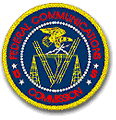Welcome to Handiham World!

How about that vote?
No, not the USA presidential elections... I'm talking about the vote of the Federal Communications Commission yesterday, Nov. 4, to free up the unused airwaves or “white space” between TV channels for use by wireless broadband services. This didn't come without a fight, because broadcasters, TV networks, and stations oppose the use of white space for wireless, fearing that it would interfere with broadcast signals. The proposal first surfaced about four years ago, and it is pretty telling about how this is a sea change in both thinking and technology when you look at who supports the change and who opposes it. On one side, there is the old technology of traditional broadcasters and on the other the new technology of computer companies, software companies, and Internet companies. Under the FCC's new spectrum plan, put forward by FCC chairman Kevin Martin, white space spectrum will be unlicensed and free to anybody who wants to use it.
I think the broadcasters are wrong on the interference issue - and so does the FCC. Of course time will tell, but the promise of wireless spectrum opening up will mean far more options for high-speed Internet access, and I think in the long run that's a good thing for amateur radio operators. It is the marriage of amateur radio applications like EchoLink and remote base station control that will truly transform ham radio as we have known it. Some amateurs are already embracing this technology, while others, mostly in rural areas, do not have high-speed Internet access and have to put up with dial-up.
You just can't do much with dial-up Internet.
Basically, the FCC would let unlicensed devices use the vacant channels, known as white spaces, as long as these devices include anti-interference technology. The way I read it, higher power wireless could then provide Internet access to far wider service areas, making it much more feasible to deliver high speed to these unserved rural areas, and even provide more competition in cities. Microsoft and Google both plan to take advantage of the new spectrum.
Where this opportunity ultimately takes us, one thing is certain: Ham radio operators will be part of the development and evolution of a new way to communicate, whether they are part of the engineering and technology teams working in industry as many do, or whether they are hobbyists writing software or designing better hardware that will take us places we haven't even thought of yet. This is really cool stuff!
For your Handiham World, I'm...
Patrick Tice, WA0TDA
Courage Center Handiham Manager
patt@couragecenter.org